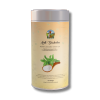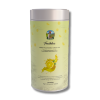

Everything you need to know about Fatty Liver
Everything you need to know about Fatty Liver
Well would you be surprised if we tell you that you have an internal body organ that is of a size of a football, weighing at approx. 3 – 3.5 pounds, hard to believe but yes it’s LIVER, that only regenerative organ and also the largest Gland of Human body. But it is not the only size which makes your liver different from other body parts, liver helps you perform more than 100 body functions, from bile secretion to enzyme excretion, from carrying out metabolism of proteins, fats and carbohydrates to detox process of blood and purifying it, the list is long and the benfits are almost unending but do you know that this important organ has to bear a lot of load, though it is made that way but still our unhealthy life style makes this organ sensitive and damaged and one such defect is a Fatty liver.
SO WHAT IS FATTY LIVER?
A fatty liver is a condition when excessive fat builds up in your liver cells, this usually Occurs When you are overweight or have an eating disorder. Doctors treat fatty liver by removing the damages part of your liver. This process is called a partial or total liverspianctomy. Over time, your body naturally heals from this process but some people need medical intervention to recover. While recovery can take months but it’s crucial to support a recovering body with healthy meals and plenty of water.
WHAT ARE THE SIGNS OF FATTY LIVER?
Well your body is quite smart than you think it is, the problem of fatty liver is not caused in a day and so the symptoms, your body tries its best to show you the changes going inside and some of the noticeable changes are change in your skin color, weight loss, fever, jaundice and other signs. Over time the color of the skin may become yellowish which is commonly known as jaundice as your liver fails to filter blood properly. Other symptoms like abdominal or back pain may be observed as your damaged liver produces excess protein in it and the best treatment is suggested within the prescribed time.
HOW DOES UNHEALTHY WEIGHT INFLUENCE YOUR LIVER?
The more weight you have, the more pressure your liver faces. This further damages your organ as it's lack of space increases inactivity levels of your body. However, overeating causes excess fat to build up in your liver cells regardless of your weight status. High cholesterol levels also promote the damaging effects of fatty acids on your organs. However, losing weight quickly reduces the risk of fatty liver damage.
Liver damage can occur due to poor choices- such as overindulging in alcohol or foods rich in cholesterol. However, recovering from fatty liver isn't impossible; you just have to follow a healthy diet and exercise plan diligently. Losing weight reduces the risk of damage due to excess adiposity- so stick to this plan and you'll be fine!
There are many factors that contribute to the development of fatty liver disease. These factors include genetics, lifestyle choices, and environmental conditions. Genetics play a role in the development of fatty liver. If both parents have fatty liver disease, then their children have a 50% chance of developing the same condition. Other risk factors include obesity, diabetes, high cholesterol levels, and alcohol consumption.
Lifestyle choices also influence the development of fatty liver, including diet and exercise habits. People who eat fast food regularly, consume excessive amounts of sugar, and do not get enough sleep are at higher risk of developing fatty liver disease. Environmental conditions also affect the development of fatty liver; these include exposure to toxins and chemicals, radiation, and poor air quality.
1. WHAT CAUSES FATTY LIVER?
Fatty liver occurs when the body stores fat in the liver instead of burning it off. When the liver becomes overloaded with fat, it starts producing toxins that cause inflammation and damage to the liver cells. These toxins eventually lead to scarring and cirrhosis of the liver.
2. HOW TO DEAL WITH FATTY LIVER NATURALLY?
The first step to dealing with fatty liver is to identify what foods are causing the problem. Avoiding these foods will help reduce the amount of toxins produced by the liver. Foods that should be avoided include red meat, processed meats, alcohol, sugar, and trans fats.
3. HOW TO PREVENT FATTY LIVER?
Preventing fatty liver requires eating a balanced diet and exercising regularly. A balanced diet includes plenty of fruits, vegetables, whole grains, lean protein, and low-fat dairy products. Exercise helps burn calories and keeps the body active.
PROBLEMS THAT CAN ARISE DUE TO FATTY LIVER
If it is not identified and treated, it can occasionally worsen and finally result in liver damage.
The primary NAFLD phases are:
1. Simple fatty liver (steatosis) is an accumulation of fat in the liver cells that is largely benign and is only sometimes detected after tests performed for another cause.
2. Non-alcoholic steatohepatitis (NASH) is a more severe form of NAFLD in which the liver has become inflamed. However, the liver is still able to function normally despite the liver's surrounding scar tissue from prolonged inflammation.
3. Fibrosis: a condition in which the liver and adjacent blood arteries develop scar tissue as a result of ongoing inflammation but the liver can continue to function normally.
4. Cirrhosis: The liver shrinks and becomes lumpy and scarred in cirrhosis, the most severe stage, which develops after years of inflammation. This damage is irreversible and may result in liver failure (where your liver stops working properly)
WHO ARE AT HIGH RISK:
If you have any of the described issue you are highly prone to fatty liver disease:
1. are obese or overweight – particularly if you have a lot of fat around your waist (an "apple-like" body shape)
2. Have type 2 diabetes
3. Have a condition that affects how your body uses insulin
4. Are insulin resistance, such as polycystic ovary syndrome
5. Have an underactive thyroid
6. Have high blood pressure
7. Have high cholesterol
8. Have metabolic syndrome (a combination of diabetes, high blood pressure and obesity)
9. Are over the age of 50
10. Smoke
FOLLOWING HERBS CAN PROVIDE A GOOD RELIEF TO PEOPLE FACING ISSUES OF FATTY LIVER :
1. SILYMARIN: Silybin, Silychristin, and Silydianin are some of the chemicals that make up silymarin, which is also known as milk thistle and derived from the seeds of the milk thistle (Silybum marianum). According to some theories, silymarin contains potent antioxidant properties that may aid to enhance liver cell regeneration, lessen inflammation, and be advantageous for people who have liver disease.
2. GINSENG: Popular herbal supplement ginseng is well renowned for its potent anti-inflammatory effects. Numerous studies conducted on animals and in test tubes have shown that ginseng has antioxidant benefits and may help prevent liver damage brought on by viruses, toxins, and alcohol. Additionally, it might promote liver cell regeneration following surgery.
3. GREEN TEA: Green tea and its primary polyphenol epigallocatechin-3-gallate (EGCG), though not technically a herb, are frequently mentioned in literature reviews focused on herbal treatments for liver disorders. According to certain research, using green tea extract supplements may be beneficial for treating liver illness. Consuming green tea has also been proven to be protective against a number of liver diseases, such as chronic liver disease, cirrhosis, fatty liver, and liver cancer.
4. LICORICE: Licorice (Glycyrrhiza glabra), though frequently associated with chewy sweets, is actually a plant with potent therapeutic qualities. Scientific research have demonstrated the anti-inflammatory, antiviral, and liver-protective properties of licorice root. The saponin ingredient glycyrrhizin, which is primarily active in licorice root, is frequently used in traditional Chinese and Japanese medicine to treat a variety of conditions, including liver illness.
5. TURMERIC: Licorice (Glycyrrhiza glabra), though frequently associated with chewy sweets, is actually a plant with potent therapeutic qualities. Scientific research have demonstrated the anti-inflammatory, antiviral, and liver-protective properties of licorice root. The saponin ingredient glycyrrhizin, which is primarily active in licorice root, is frequently used in traditional Chinese and Japanese medicine to treat a variety of conditions, including liver illness.
6. GARLIC: Even though garlic is technically a vegetable, it is a common ingredient in many herbal treatments. Allicin, alliin, and ajoene are some of the effective antioxidant and anti-inflammatory plant compounds that are abundant in it and may improve liver function.
7. GINGER: In addition to being a well-liked culinary item, ginger root is frequently used as a medicinal treatment for a variety of illnesses, including liver disease. Strong substances found in ginger root, such as gingerols and shogaols, aid to reduce inflammation and guard against cellular damage, which may improve liver function. Additionally, ginger may shield your liver from poisons like alcohol. Strong substances found in ginger root, such as gingerols and shogaols, aid to reduce inflammation and guard against cellular damage, which may improve liver function. Additionally, ginger may shield your liver from poisons like alcohol.
8. GINKGO BILOBA: Popular herbal supplement ginkgo biloba has been connected to better liver health. A rodent study, for instance, demonstrated that ginkgo biloba injections decreased liver fibrosis and improved liver function.
9. ASTRAGALUS: An herb that can be eaten, astragalus is frequently utilised in traditional Chinese medicine. It contains a tonne of medicinal substances, including as saponins, isoflavonoids, and polysaccharides, which are potently therapeutic. When administered alone or in conjunction with other herbs, astragalus may help prevent fibrosis and high-fat diet-induced fatty liver, according to rodent studies.
10. LEMON: Vitamin C and antioxidants found in lemons help the liver generate glutathione. This enzyme aids in detoxification by neutralizing the poisons in the liver. Simply squeeze a lemon into a glass of water, and then drink it two or three times every day for a few weeks. This will aid in lowering the amount of fat that has built up in the liver and naturally treat fatty liver disease.





